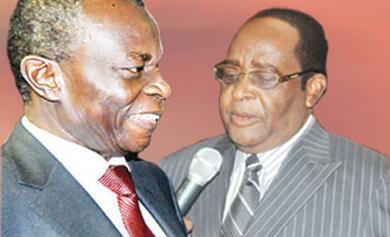
Lead lawyer to the President of the Court of Appeal (PCA), Chief Akin Olujinmi (SAN), yesterday, faulted the refusal of the National Judicial Council (NJC) to receive court processes by the PCA against the NJC and other defendants, saying that the development was scandalous.
Olujinmi said he was shocked at the development, saying that the NJC’s action was capable of sending wrong signals to members of the public. There was mild drama yesterday at the premises of the NJC as no official was ready to accept service of the court’s process of a suit filed by Justice Salami against the NJC, Chief Justice of Nigeria (CJN), Justice Aloysius Katsina-Alu, and nine others.
Salami is asking the court to set aside the directive of the NJC, asking him to apologise to the CJN and the NJC.
Olujinmi, who is also the former Attorney-General of the Federation and Minister of Justice said this while fielding questions from members of the National Judiciary Correspondents in his office in Abuja, yesterday.
He said, “I must say that I am shocked at this development, if you have a process being refused by the NJC , won’t you agree that, that is sending wrong signals to the public?
‘If the man on the street refuses to accept service, you would say because he is ignorant, but what would you say of that very high body composed of eminent justices?
‘And the secretary of the institution is obviously very well informed in the law himself and I see no reason why he should refuse service of court process, it bothers me a lot, it is scandalous, I don’t see how he can justify it
“There should not be any reason for that kind of situation to arise in the NJC because obviously the body is aware and it is even interesting that from information reaching me that the process was actually collected by one of the officials of the NJC and they took the process up and now came back to say ‘We have instructions not to accept’, so, I don’t see how he can justify that”
He argued that if one had anything against a court process, the best way to go about is “of course you come to the court, if you want to challenge service, you come there and challenge it, but it is not a right approach to refuse service, you can understand the laymen when they refuse service, but how do you explain this happening at that level of the judiciary? I think it is most unacceptable.”

